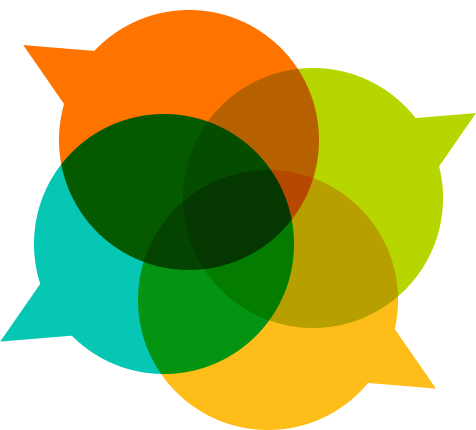So, this is not easy. One way to think about it is to work in two directions at once, and try to converge:
Backward from the goal: what we want people to come away with at the end
Forward from the tools: what musical learning experiences we can create with existing technologies
GOALS
For the goal, I’d love to have people learn one thing:
I am capable of participating in musical creation in a meaningful way.
any goals related to skills and knowledge should, in the end, serve this one. music theory ideas, for example, are not important for their own sake (in this context), but only if they help you participate in musical creation.
TOOLS
For the tools, I’m not sure exactly what the constraints should be. for example, I’m working on an iPad app called MelodyMorph, and I’d love to do a whole course around that (some day). so that would be only for people who have access to an iPad. Instead we could say, only free tools (which could include software, web apps, phone apps). or we could say only free web apps.
I think we could do a lot with “only free tools,” if we structure the projects so that they can be completed in any of a variety of ways.
a downside is that we have to support helping people use a whole range of tools. we can crowdsource the help (ask people with expertise in a tool to help others with it), and/or list ones we will provide help with ourselves and let people fend for themselves if they use other things.
So to think in more detail about tools, I need to think about:
PROJECTS
So, this will be a sequence of musical projects, that is:
-
not necessarily cumulative (i.e. you can complete later tasks without having done earlier ones, but you can make them build on each other if you want).
-
It will start with some things that are incredibly simple and
accessible. it’s hard to overstate the importance of this, so as not
to scare people away.
-
It will focus on projects that show people they can participate
meaningfully in musical creation- which can mean a wide variety of
things.
-
it will use tools that are available for free, with a small set of alternatives available in each case
OKAY WHAT ARE THE ACTUAL PROJECTS
uhhh… gotta go!
just kidding. this is of course not easy. Vanessa and I did talk about a couple of semi-formed ideas. Here are some bits from my notes:
MUSICAL INTROS
who are you as a musical person? everyone has a musical life. tell us about childhood songs you sang, bands you like, music you dance to, instruments that family and friends like to play, instruments you play, instruments you wish you could play, music you’ve created, music you wish you could create. what are your musical goals? what does creative musical making mean to you? do you wish you could write a song? improvise with a group? perform a song for your friend? make remix? compose a film score? Everybody makes a 30 second video just talking about these two questions, with optional musical examples
MUSICAL MATERIAL
everyone somehow generates raw musical material to later be used in remixes by the group. collective co-creation, anybody can use anybody else’s stuff. you have a choice for what kind of material to submit, but it has to be in a small chunk: a short sound recording (e.g environmental sounds), a short melodic recording (e.g. sung or played on an instrument), a short sample taken from existing recorded music or sound, a fragment of lyrics. this requires introducing some tools, but simple ones- just audio recording mainly. later on, we can play with manipulating the sounds (slicing them up, changing the pitch, etc), putting them into a sequencer. later exercises of this type can introduce more constraints: everyone makes a sound using their voice, or chooses a one second sample from a recording, or composes a short melody. then the creation exercises using this material can be more focused.

